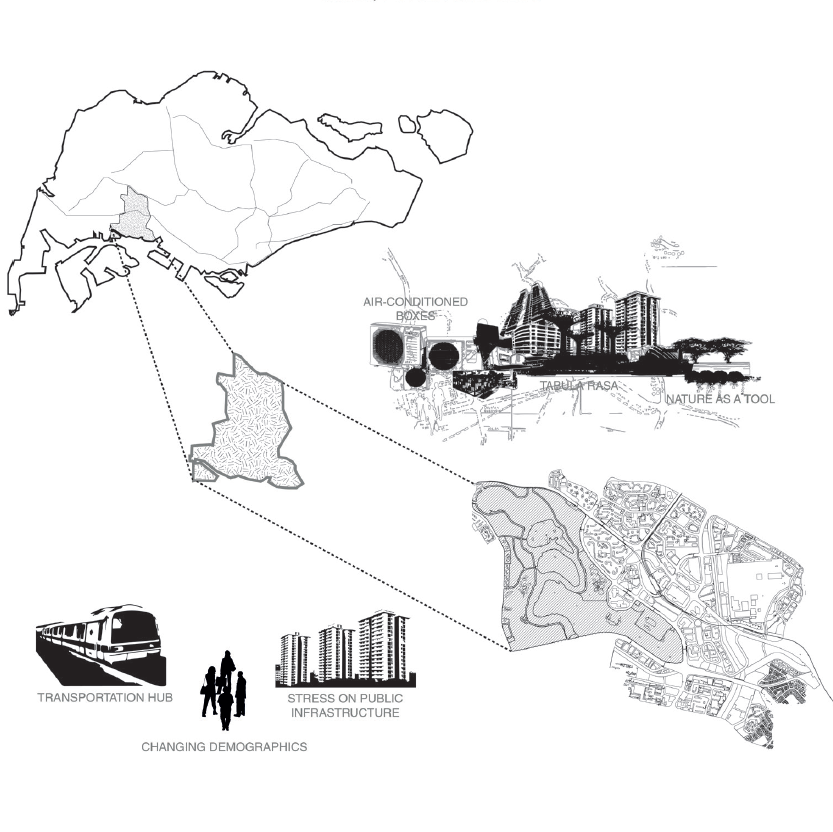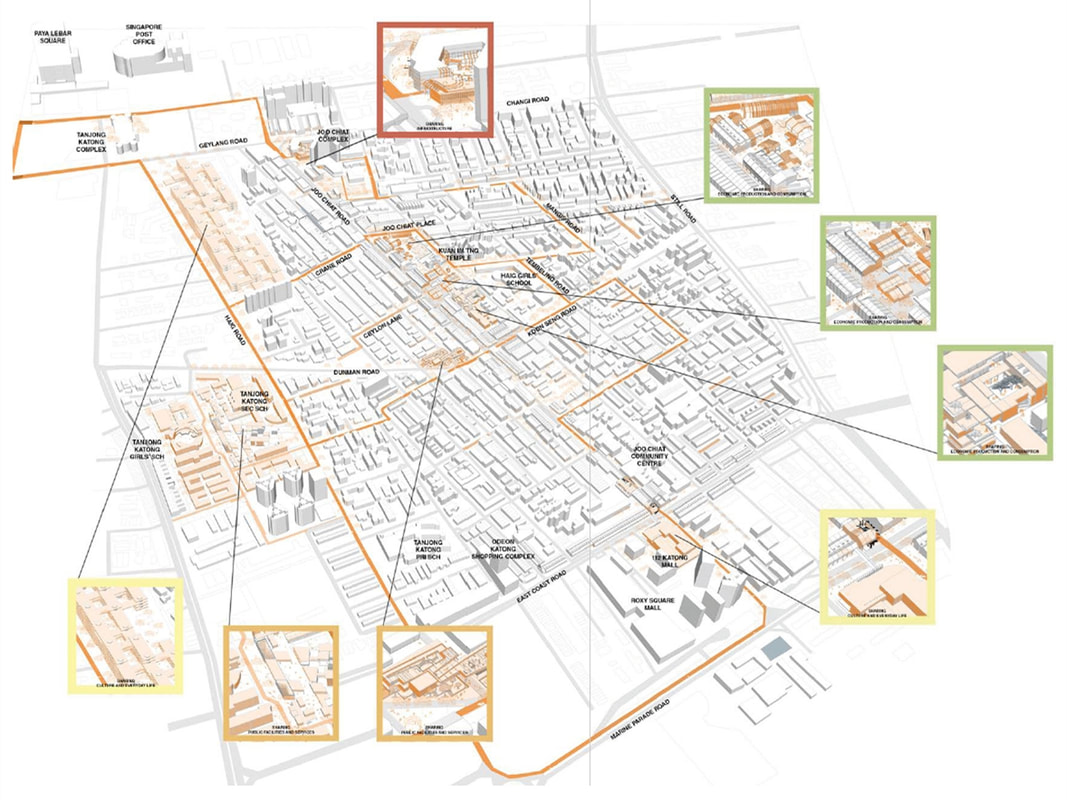NUS-Tsinghua Joint Studio: Sharing Cities | 2017 | NUS Studio
Urban Commons in Jurong East
|
As the civic society matures, both people and government have displayed an increasing awareness of the role and importance of active citizenship. Recognising that strengthening communities play a crucial role in propelling the nation towards a socially more inclusive and sustainable city, the empowerment of individuals to involve and act will be the key to
addressing existing and future challenges of the city. These challenges are related to the management of urban resources, as conflicting needs and evolving desires of different communities arise in view of the rising and increasingly diversified population. Therefore, this signals a paradigm shift in the nation’s socio-political ideology where the collaboration of citizens, organizations and agencies in co-creating the city is pushed to the forefront. Socio-cultural practices of sharing and collaboration should and would become key aspects of the daily lives of people, as they underpin social reproduction and social relations between communities. In this studio, projects by pairs and individuals illustrate the exploration of design possibilities for sharing institutions which facilitate collective efforts, actions and thus social capital to be enhanced. These processes are pivotal to the cultivation of the urban commons. With the vision of establishing urban commons in Jurong East, each project targets specific community groups and addresses their conflicting and complementary needs. These are achieved through identifying overlapping needs and possible contributions of the respective communities, and subsequently proposing sharing innovations among them. Various medium in the urban sphere, as elaborated in the projects, thus cater for the social production and consumption of tangible and intangible resources in Jurong East. |
01 Setting the Foundation for Urban Commons |
02 Stimulating Urban Commons |
|
|
|
Sharing as Just Sustainability
|
As a response to the privatisation and enclosure imposed by the neoliberalism, sharing is arguably becoming one of the defining characters of future cities. This studio hence takes on the sharing paradigm as a potential way to regenerate existing urban areas by proposing various design ideas as part of a collective system that is sustainable. The key challenge of this exercise refining the urban and architectural environment such that it adapts effectively to the emerging new lifestyles defined by sharing.
As such, the studio selected Joo Chiat, a multi-cultural traditional neighbourhood located close to the heart of Singapore, as the site to support design exploration. Its rich architectural heritage, fine-grained urban fabric and concentration of residents of various cultural backgrounds and socio-economic statuses provide a complex but fertile test bed for experimenting with new ideas of sharing. A systems approach is adopted to guide the design investigation, which is primarily consisted of two phases. The first focuses in particular on developing a system of sharing, tackling a certain dimension of urban neighbourhood, and the second aims at translating the system into an urban design and architectural solution. Following this approach, the studio explored and developed four systems of sharing and corresponding design solutions, namely infrastructure, public facilities and services, economic production and consumption, and culture and everyday life, and how in combination the system can provide a concerted and coherent imagination of what kind of new forms of sharing may take in future cities. The four systems and respective design proposals are to be read whole as a sharing masterplan superimposed and weaved into the complex pre-existing conditions of Joo Chiat. |
01 Sharing Infrastructure |
02 Sharing Public Facilities and Services |
|
|
|
03 Sharing Economic Production and Consumption |
04 Sharing Culture and Everyday Life |
|
|
|






